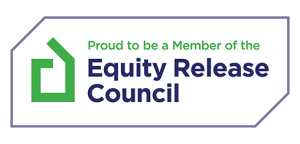How to stay calm during the financial crisis
We’ve spoken to lots of clients and put together a few tips that can help address some of the anxiety and concern you may be feeling. We hope these simple tips may help you remain calm in these unsettling times.
1. Turn off the TV
We all know that the priority for the press is to grab your attention. There is no point in allowing the media to influence your views around your investment. Bad news sells papers, it does NOT inform you in an objective manner. Your funds are often held for decades and your decision to invest is the correct one FOR YOU. We invest for the long-term and we remain sensible.
Try to avoid the constant deluge of negative press in the media as much as you can.
2. Don’t look over the fence
Your financial situation is unique to you and comparing ourselves to others just allows uncertainly to creep in. It doesn’t make any difference to you if your friend has a different fund or an extra pension. Your plan suits what you need, and you are in control of your financial plan.
Live your own financial life.
3. Stop checking your pockets
We feel happy when our funds go up and MUCH worse when they go down. DON’T check your funds every day. This doesn’t inform you and serves only to cause you to worry.
You are investing for many years, often decades. If you have your investment approach set up correctly then an annual review is enough to keep things on track. STOP looking at your funds every day and try to discipline yourself to checking over longer periods. Maybe start with quarterly and be strict with yourself. You’ll notice that you’ll feel less anxious right away.
4. Have a plan
An annual review makes a lot of sense. At this review you are likely to make only very small changes. An annual review can look at income levels, your values, your protections levels and your budget. This needs to take only a few hours every year. Of course, if there is a particular event or change in your circumstances then you are invited to request an ad-hoc review, but again, you are in control of your financial plan.
Don’t second guess a decision that you’ve already made. Very few financial decisions cannot be altered or tinkered with at your review. At your review you can make small incremental changes to keep in line with your financial plan, allowing you to then get on with your everyday business. Making lots of changes because you feel you should can lead to a negative outcome, sometimes doing nothing is a important decision of its own. Remember its all about TIME IN the market rather than TIMING the market.
5. Keep it simple
It is considerably easier to review your financial plan every year if you keep it simple. In an ideal world most of us would have ONE pension, ONE ISA and ONE bank account and in some cases we may hold a General Investment account.
It makes little sense and less financial benefit to hold several pots or investment funds all over the place, and only serves to cause more confusion that can increase anxiety and make things hard to keep control of.
Have your investments managed and see if they can be re-balanced at each review (or more frequently) automatically. You’ll then have the peace of mind knowing that your investment will adapt to market and economic condition and keep you on track and in control of your plan.
6. Let someone else do it
This will give you the most peace of mind. Most of our clients are more than capable of reviewing and planning their own financial affairs but the worry creeps in when they find that they are busy with other aspects of their lives and haven’t found the time. They may also worry that something should be done that they have overlooked.
Our clients remain calm because they have employed us to manage their financial plan. They have handed over the responsibility for checking balances, the reviews, investment oversight and reporting to us. They remain calm because they know that this is in hand and that they can go about their day in the knowledge that we will remind THEM when it’s time to review their plan.



